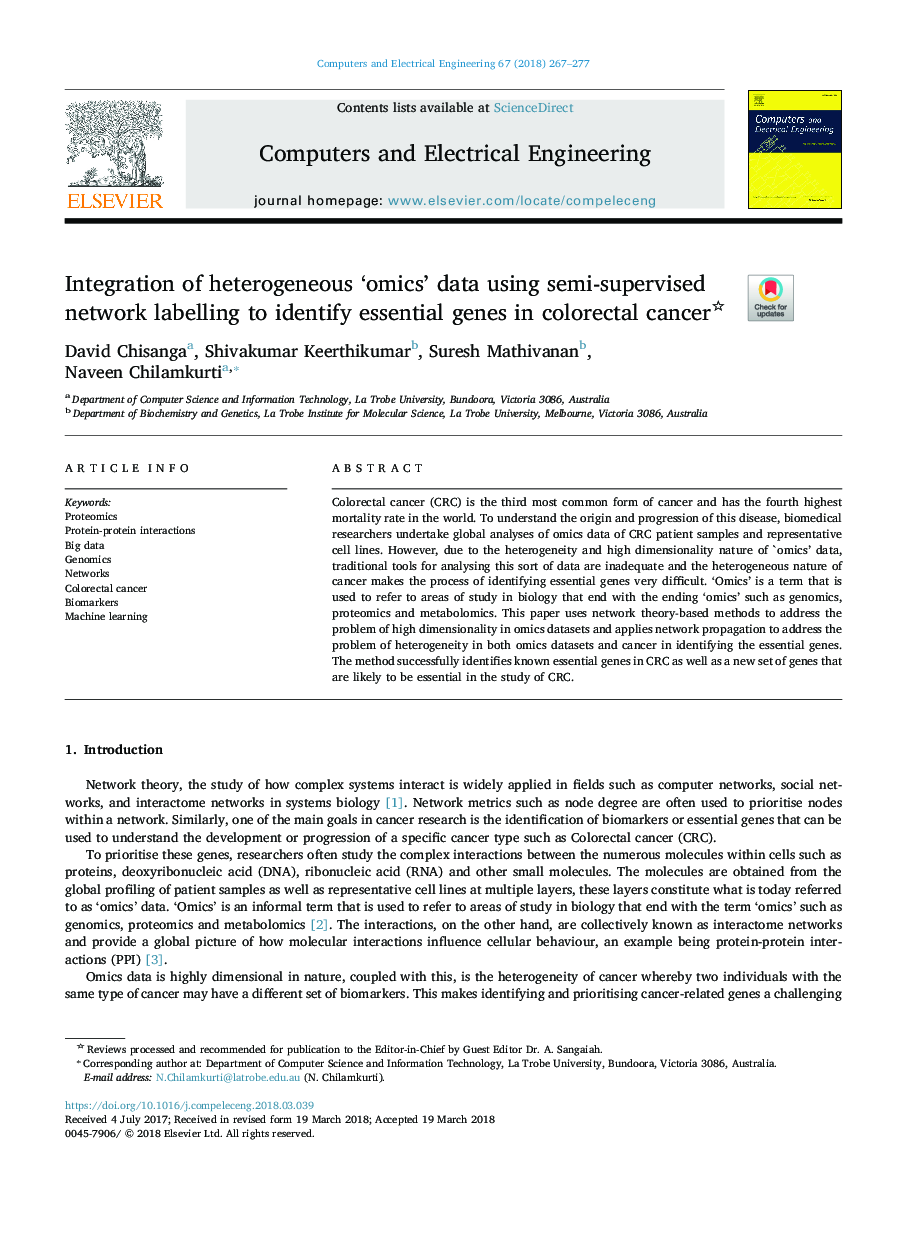| Article ID | Journal | Published Year | Pages | File Type |
|---|---|---|---|---|
| 6883437 | Computers & Electrical Engineering | 2018 | 11 Pages |
Abstract
Colorectal cancer (CRC) is the third most common form of cancer and has the fourth highest mortality rate in the world. To understand the origin and progression of this disease, biomedical researchers undertake global analyses of omics data of CRC patient samples and representative cell lines. However, due to the heterogeneity and high dimensionality nature of `omics' data, traditional tools for analysing this sort of data are inadequate and the heterogeneous nature of cancer makes the process of identifying essential genes very difficult. 'Omics' is a term that is used to refer to areas of study in biology that end with the ending 'omics' such as genomics, proteomics and metabolomics. This paper uses network theory-based methods to address the problem of high dimensionality in omics datasets and applies network propagation to address the problem of heterogeneity in both omics datasets and cancer in identifying the essential genes. The method successfully identifies known essential genes in CRC as well as a new set of genes that are likely to be essential in the study of CRC.
Keywords
Related Topics
Physical Sciences and Engineering
Computer Science
Computer Networks and Communications
Authors
David Chisanga, Shivakumar Keerthikumar, Suresh Mathivanan, Naveen Chilamkurti,
